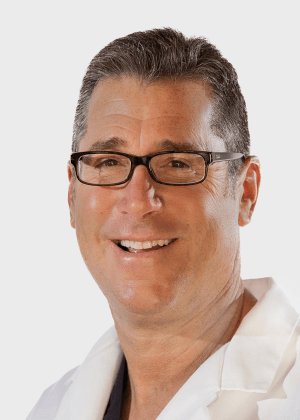Keeping Your Back Healthy and Strong

Whether you are swinging a club, picking up a ball or carrying your bag, you risk seriously injuring your back, says Dr. Jeffrey Bash, a board certified orthopedic surgeon with Middlesex Health who specializes in spine surgery. Tiger Woods is proof. The New York Times recently reported that the famous golfer has had five major back surgeries, including surgeries to repair herniated discs.
A herniated disc is a common, more serious golf injury — one that can greatly impair your mobility. When you have a herniated disc, the discs that sit between the bones that support the spine (vertebra) bulges out of place because of a tear in the disc’s exterior layer. “In other words, the jelly ruptures out of the donut,” Dr. Bash says. The result can be painful, especially if the disc is near a nerve. Symptoms can include pain, numbness and weaknesses that can travel through your legs. This condition is known as sciatica from a slipped disc.
But just because you could potentially hurt your back playing golf, doesn’t mean that you need to limit your time on the course. Dr. Bash says there are simple things you can do to lower your risk of injury and improve your overall health.
Walk.
Walk the course. Don’t use a golf cart.
In addition to burning more calories, exercise can help improve your back health. It takes hours to play a round of golf, and Dr. Bash says prolonged sitting can increase pressure on those discs. Your back can tighten while sitting. When you suddenly take a swing, it can cause injury.
Consider how you carry your clubs.
Instead of slinging a heavy golf bag over one shoulder, opt for a lighter walking bag with straps, and wear it like a knapsack. This may mean only carrying 10 extra golf balls instead of 30. You may also opt to leave your less used clubs in the car.
By wearing the bag like a knapsack, you evenly distribute the weight and use both shoulders.
For an even better option, buy a push cart or walking cart.
Buy the correct clubs.
Get fitted by a professional. Your golf clubs should be the correct length. Otherwise, you risk injuring your back.
Use proper technique when picking up your ball.
There’s a way to do it right. Bend with the knee and then kneel on a knee to pick up your ball. If you already have back issues, you could also buy a gadget that picks up the ball for you!
Don’t forget to warm up.
“It’s crucial in this sport that you take 10 minutes to stretch out,” Dr. Bash says.
Stretch. Take some practice swings with different clubs. Warming up before hitting the course is a must, he says.
Perfect your swing.
A shorter swing means less stress on your back. The more repetitive torque with force on your back, the greater the risk of a herniated disc.
Consider taking lessons from a pro. Learning to swing the right way will help to prevent injuries.
Condition off the course.
It is important to strengthen and stretch your abdominal and back muscles, known as your core. These muscles protect your spine.
Manage your weight and quit smoking.
While this is general health advice, Dr. Bash says it is important advice that can help your back. For example, smoking damages the discs in the spine — not just the heart and lungs.
When to get help
Even the best, most well-conditioned golfers can hurt their backs. If you experience any neck or back pain that doesn’t go away, or if you experience any numbness in your arms or legs, you should see a spine surgeon. You may need to get an MRI of your spine.
Fortunately, back injuries can often be treated by taking anti-inflammatory medicine, getting steroid injections, or visiting a physical therapist or chiropractor. If needed, surgery may be another option, and Middlesex Health performs minimally invasive procedures, disc replacement and robotic surgery that can improve results with less recovery time. For more information about spine surgery at Middlesex Health, click here.
Featured Provider

Jeffrey A. Bash, MD
Specialties / Areas of Care
- Orthopedic Surgery
Locations
- Middletown, CT
860-685-8940
- Portland, CT
(860) 832-4664
- View Full Profile
- Accepting New Patients
More Stories
Making a Difference One Golf Swing at a Time
June was a busy month for Middlesex Health. In addition to providing excellent care every day for patients, celebrating Pride Month and marking Juneteenth, the health system was at the golf course supporting the community!
Spotlight: Men’s Health
When it comes to health care concerns that disproportionately impact men, such as heart disease and cancer, there is good news despite the grim statistics. With the help of a health care provider, many diseases are preventable.